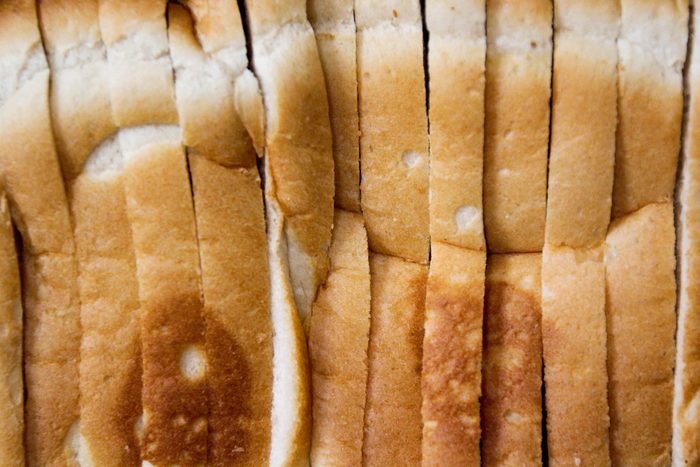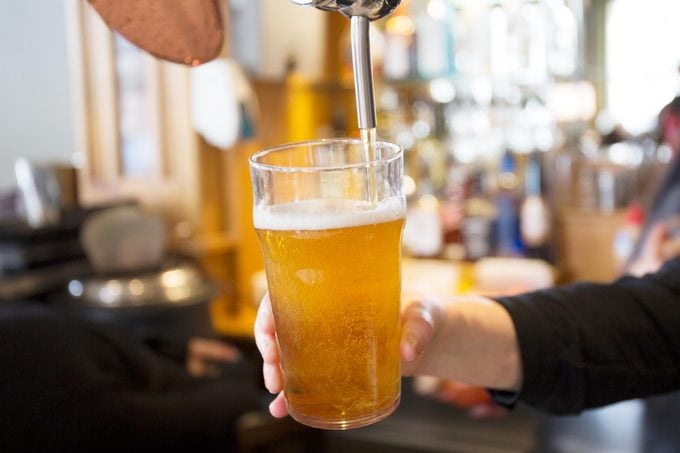New Study: White Bread and Alcohol Linked to Colorectal Cancer
Updated: Dec. 06, 2023

Researchers also highlighted a few key nutrients that protect against cancer—including a surprisingly promising discovery about cereal.
Colorectal cancer ranks as the third most common cancer in the U.S., according to the American Institute for Cancer Research. While genetics play a role, lifestyle changes in diet and exercise can significantly reduce the risk.
In a study published on November 16, 2023, in the journal Nutrients, researchers from Chinese and Scottish universities aimed to identify foods and nutrients that could influence colorectal cancer among 139 commonly consumed items. They narrowed in on over 118,000 participants in the UK Biobank—a collection of various health information of over 500,000 British adults—who completed a food questionnaire about dietary habits. Almost 1,500 developed colorectal cancer over the course of 12 years. The study revealed that alcohol and surprisingly, white bread, had strong associations with the disease.
The study also highlighted nutrients that protected against cancer, rather than focusing on specific foods. Along with dietary fiber, which has already been widely studied as a protectant against colorectal cancers, they added calcium, magnesium, phosphorus, and manganese. Also, they noted that the protective effects were stronger in men, and the dietary connections didn’t correlate as strongly with women. Along with the consumption of white bread and alcohol, the people who contracted colorectal cancer during the study were more likely to be older white males with a genetic predisposition to colon or rectal cancer, have higher BMIs, and were more likely to be smokers and have diabetes.
How High Is Your Colon Cancer Risk? This 1-Minute Quiz Helps You Find Out

While fiber was a protectant, interestingly, fiber from fruit, vegetables, and legumes didn’t appear to provide as much protection against colorectal cancer as cereal fiber, highlighting the importance of adding whole grains to the diet. White bread, in fact, which is largely devoid of fiber and many nutrients, was connected to both colon and rectal cancer. Some of the other nutrients seemed to protect against colon or rectal cancer. Increased intake of items with calcium and manganese resulted in lower rates of colon cancer while fiber and magnesium correlated with lower rates of rectal cancer.
While the implication and connection with low-fiber white bread and alcohol are not new, they underscore the importance of a healthy diet in the prevention of colorectal cancers, especially among men. They also emphasize the importance of consuming a diet rich in vitamins and minerals, outside of just eating less sugar and maintaining a healthy weight.
The researchers estimate that diet has the potential to prevent about 25% of colorectal cancers but there has been a challenge in getting people, particularly men, to act. Advice to increase fiber intake, reduce alcohol consumption, and limit red meat is sometimes disregarded. Recommendations for early screening at 45 are also often overlooked, leading to delayed detection. The key message underscores the critical role of lifestyle choices in colorectal cancer prevention, urging timely screenings and dietary adjustments.
















